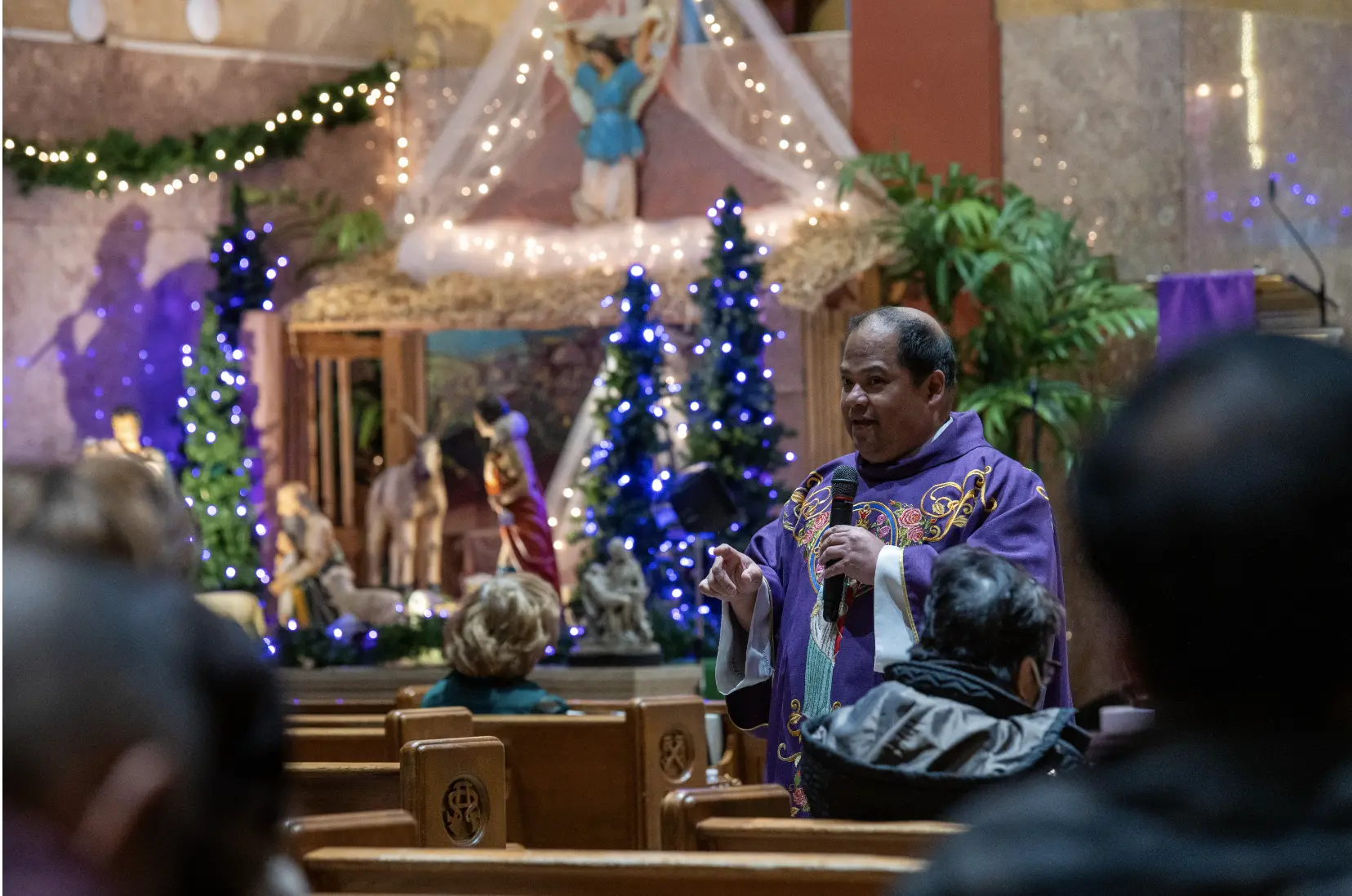Filipino Catholics celebrate Simbang Gabi (Video)
Area Filipinos celebrated Simbang Gabi, a devotional, nine-day novena of Masses honoring Mary in anticipation of Christmas, Dec. 15 – 23.
The novena originated in the 1600s in the early days of Spanish rule over the Philippines. The tradition includes the celebration of Masses, novenas, and food.
Father Edgardo P. Jocson who was at the first Mass of the novena on Friday, Dec. 15 at St. Elizabeth in Liden said it is important to keep the tradition alive here in the U.S.

“It is how our people prepare for the coming of the Lord Jesus,” Father Jocson said.
In the Philippines, the Masses are held in the early morning hours from as early as 3 to 5 a.m. “when the roosters crow, hence the name Misa de Gallo or ‘Mass of the rooster,’” Father JM Manolo A. Punzalan, STL, MA, the Filipino Apostolate, said. “This was done as a practical compromise for farmers, who began work before sunrise to avoid the noonday heat out in the fields and for fishermen who were out all night fishing and finish work at dawn.”
So, at the first light of dawn, as church bells rang, and a band played traditional Christmas carols throughout the town, families would walk or ride their carabao (water buffalo) sleds to their local church on each of the nine mornings leading up to Christmas, Father Punzalan said.
Many Filipinos believe that petitions brought to the baby Jesus at each of the nine Simbang Gabi Masses are especially likely to be answered.
“Churches are generally filled out the doors, or the Mass is held outside to accommodate the crowd. The timing of the Mass helps make the event special and highlights the seasonal sense of anticipation,” Father Punzalan said. “The experience of rising early in the morning and traveling to church in the dark adds an element of sacrifice and specialness.”

After Mass, the streets are lined with food vendors for all to break their fast in a celebratory way before the labor of the day begins. The experience of eating together among the crowds in the plaza after Mass, before heading to work, adds a sense of festiveness and camaraderie.
The Holy See gives special permission to the Philippine Church to celebrate Simbang Gabi. This permission includes the singing of the “Gloria” at Mass and priests can wear white vestments. Churches are ornately decorated with Christmas themes.
For Filipinos who now call the U.S. home, the tradition of Simbang Gabi continues here and in the Archdiocese of Newark where 11 Masses will be celebrated this Christmas season. However, most are held after work at 8 p.m.
“Simbang Gabi is important to us because it is a tradition of our country that eventually became a distinctive feature of Filipino culture. It became a symbol of sharing and integration in the Filipino community,” Dwight Malapit, President of Filipino Apostolate of Union County, said.
Not all parishes celebrate the full nine days. In most cases, neighboring parishes each take one of the nine nights, and people go from church to church for the novena.
As for the food after Mass, Father Punzalan said even in the United States, no Filipino liturgical celebration is complete without a reception.

“If there are no sweet rice cakes or puto bumbong or ginger tea, there will at least be sandwiches, sweet bread, and maybe even pancit (noodles mixed with vegetables and meat) and lumpia (egg rolls). But for sure, there will always be enough food for all to enjoy,” Father Punzalan said.
Gene B Salle, Vice President of Filipino Apostolate of Union County, said the nine-day tradition “leads us to be spiritually prepared through the celebration of communion.”



